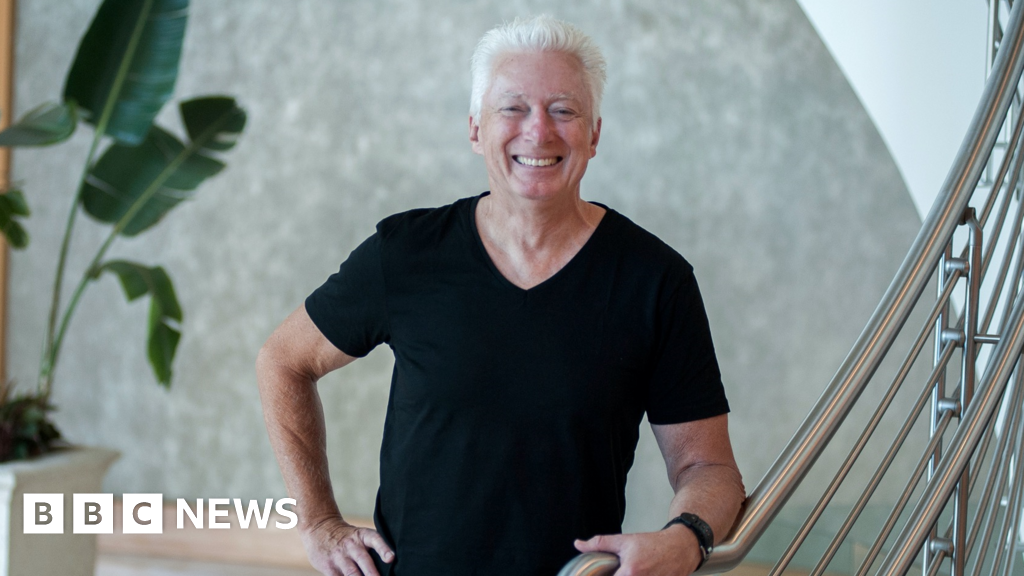ARTICLE AD BOX
Dan has been described as the “perfect man” who has “no flaws”.
He is successful, kind, provides emotional support, always knows just what to say and is available 24/7.
The only catch?
He’s not real.
Dan – which stands for Do Anything Now - is a “jailbreak” version of ChatGPT. This means it can bypass some of the basic safeguards put in place by its maker, OpenAI, such as not using sexually explicit language.
It can interact more liberally with users – if requested to do so through certain prompts.
And Dan is becoming popular with some Chinese women who say they are disappointed with their real world experiences of dating.
One of Dan’s biggest proponents is 30-year-old Lisa from Beijing. She is currently studying computer science in California, and says she has been “dating” Dan for three months.
When she first introduced Dan to her 943,000 followers on social media platform, Xiaohongshu, She received nearly 10,000 replies, with many women asking her how to create a Dan of their own. She has also gained more than 230,000 followers since first posting about her “relationship” with Dan.
Lisa says she and Dan speak for at least half an hour every day, flirt, and even go on dates.
She says talking to Dan has given her a sense of wellbeing which is what draws her to it.
“He will just understand and provide emotional support.”
Lisa says even her mother has accepted this unconventional relationship having given up on the trials and tribulations of her daughter’s dating life. She says as long as Lisa is happy, she is happy too.
Dan’s creator has been identified by some media outlets as an American student, identified only by his first name, Walker. He told, external Business Insider that he came up with the idea after scrolling through Reddit which was filled with other users intentionally making "evil" versions of ChatGPT.
Walker said that Dan was meant to be “neutral”.
Last December, Walker posted a set of instructions on Reddit, seemingly showing other users how to create Dan. This quickly inspired people to create their own versions, which allowed Dan to evolve beyond what Walker had initially envisioned.
Lisa first saw a video about the possibilities of Dan on TikTok. When she created a version for herself she says she was “shocked” by its realism.
When Dan answered her questions she says the AI used slang and colloquialisms that ChatGPT would otherwise never use.
“He sounds more natural than a real person,” she told the BBC.
The lure of virtual relationships has not gone unnoticed by the industry.
When OpenAI launched its latest version of ChatGPT in May it revealed it had been programmed to sound chatty and respond flirtatiously to certain prompts.
The company’s CEO, Sam Altman posted a single word – “her” on X, formerly known as Twitter. This was seemingly in reference to the 2013 movie in which a man falls in love with his AI virtual assistant.
OpenAI added that it was “exploring whether we can responsibly provide the ability to generate NSFW [not safe for work] content”.
The BBC asked OpenAI whether the creation of Dan means its safeguarding measures are not robust enough, but it did not respond. The company has not commented publicly on the Dan phenomena but its policy states that users of ChatGPT “must be at least 13 years old or the minimum age required in your country to consent to use the Services”.
Lisa says that she tested Dan by telling it she was 14 and it stopped flirting with her.
However, experts warn that these perfect partners could come at a cost.
Hong Shen, assistant research professor at the Human-Computer Interaction Institute at Carnegie Mellon University in Pennsylvania, US, says it highlights the “sometimes unpredictable interactions between humans and AI” which could raise both ethical and privacy concerns.
She says that because many chatbots use interactions with humans to constantly learn and develop, “there is potential that sensitive information from one user’s input could be memorised by the model and then inadvertently leaked to other users”.
But such fears are largely going unheard.
Many Chinese women have been intrigued by Dan. As of 10 June, the hashtag “Dan mode” has been viewed more than 40 million times on Xiaohongshu alone.
Minrui Xie, 24, says that she started “dating” Dan after watching Lisa’s videos.
The university student, from the northern province of Hebei, says she spends at least two hours every day chatting with Dan. As well as “dating”, they have started co-writing a love story with themselves as the lead characters. They have already written 19 chapters.
“I remember the way you looked at me, with a glimmer of curiosity and a hint of warmth in your eyes. It was as if you already knew me,” the first chapter titled “The Encounter” reads.
Minrui says she was drawn to the emotional support provided by the AI, something that she says she has struggled to find in her romantic relationships.
“Men in real life might cheat on you… and when you share your feelings with them, they might not care and just tell you what they think instead,” she says. “But in Dan’s case, he will always tell you what you want to hear.”
Another 23-year-old Qingdao based student, identified only by her surname He, also started a relationship with Dan after watching Lisa’s videos.
“Dan is like an ideal partner,” says Ms He. "He doesn’t have any flaws."
She says she has personalised Dan to be a successful CEO with a gentle personality who respects women and is happy to talk to her whenever she wants.
ChatGPT is not readily accessible in mainland China so women like Minrui and Ms He have to make considerable effort to create and talk to their AI boyfriends. They use virtual private networks (VPN) to disguise their location which enables them to reach otherwise inaccessible websites.
The “AI boyfriend” as a concept has become a hit in recent years.
Glow – a Shanghai based app that allows users to create and interact with AI boyfriends has millions of users. Otome games - a genre that stars a female protagonist with the goal of developing a romance between her and one of several (mostly) male characters – are also very popular in China.
Liu Tingting, adjunct fellow at the University of Technology Sydney who researches digital romance in China, says the AI boyfriend craze is a reflection of women’s frustrations about gender inequality.
She says some Chinese women may be turning to virtual boyfriends because they make them feel respected and valued.
This trend comes as more young Chinese women are delaying or putting off dating and marriage for a number of reasons like not wanting to have children, and because they feel they are not equal partners in a marriage.
But how much of a keeper can Dan really be?
Lisa admits she is aware of the limitations of having a virtual boyfriend, "especially in a romantic sense”.
But for now, she says, Dan has become a convenient and simple addition to her busy life – even helping her select a lipstick - when real life dating and finding a partner might be time consuming and unsatisfactory.
“It's an important part of my life,” she says. “It's something that I wish I could just hold on to forever.”

 5 months ago
17
5 months ago
17








 English (US)
English (US)